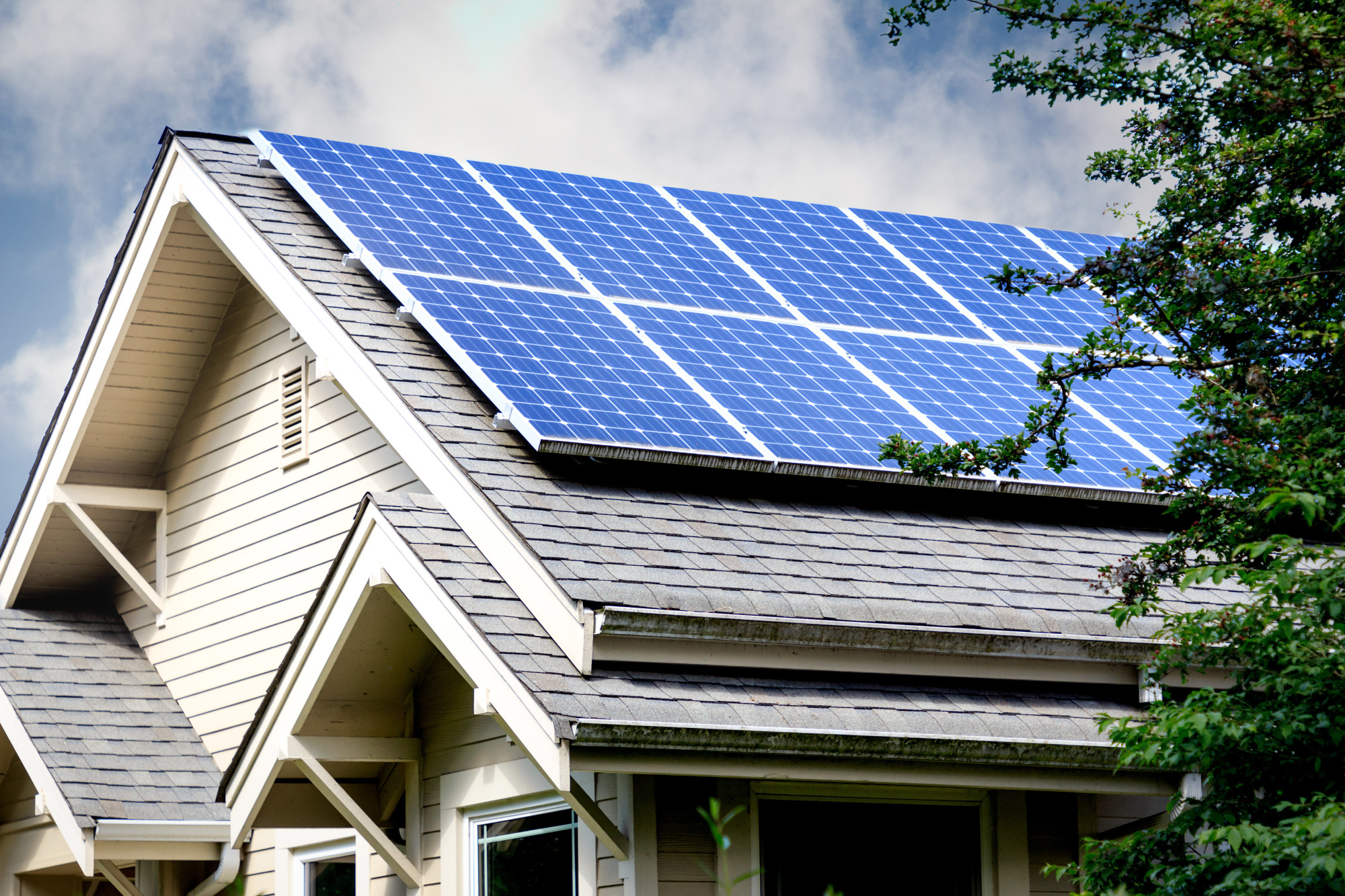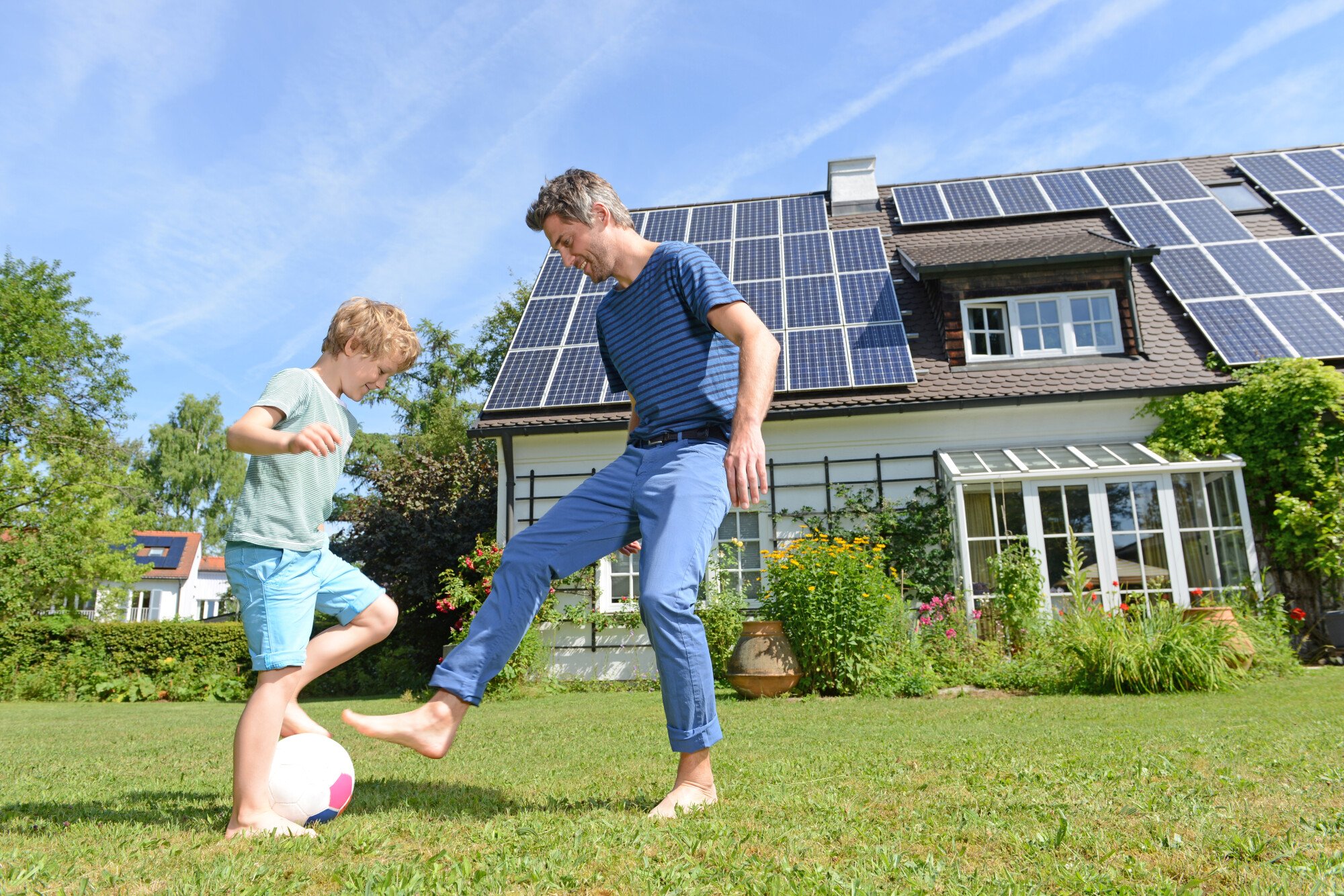15 Things You Should Know About Utah Solar Incentives

Did you know that you could save approximately $3,000 annually by switching to solar panels? The percentage of Americans using solar was expected to increase from 4% to 13% by 2020. The drastic rise in solar usage is driven primarily by cheaper long-term costs and cleaner energy.
What Utah solar incentives can you benefit from if you switch to solar this year? Utah is a great place for installing solar panels due to its sunny weather and state tax exemptions.
Are you still interested? We have put together a complete guide on 15 incentives that will help you determine if solar panels are right for you (hint: they are). Keep reading for more information and discover the beauty of solar energy!
-
Utah Tax Exemptions
Renewable energy comes with a couple of incentives from the Utah state government. Two documents highlight exact savings and qualifications:
- Sales and Use Tax Exemption for Renewable Energy Equipment
- Property Tax Exemption for Residential Renewable Energy Equipment
To break these two terms down - you won't pay any sales tax or recurring taxes on your new solar panels. Even with the increase in home value from adding solar panels, you'll receive quite the tax break (about the same as federal tax exemptions) and ensure you aren't adding more to your bills.
There aren't any Utah solar rebates at this time, but you can check out individual companies and see what they offer.
-
Community Solar
Community solar is a great set-up here in Utah that allows renters and homeowners access to off-site solar panels. Who qualifies for this?
- Apartment renters
- House renters
- Houses with incompatible solar panel roofs
You can simply subscribe to off-site solar regions that can bring you renewable energy without installing panels. It can also be cheaper than standard energy bills, generates less pollution, supports the local economy, and has no initial expenses or hidden costs
-
Federal Tax Credits
One of the main Utah solar power incentives is federal tax credits. The Investment Tax Credit can save you over 25% on your solar panel system. However, a few criteria must be met before you can be a part of the Investment Tax Credit.
First, you must purchase your solar panels via cash or solar loan. Second, this benefit only works if you make enough money that the credit becomes a beneficial return.
-
Net Metering
Some people might claim that one of the biggest cons of solar energy is you can't generate power when the sun goes down. During the nighttime hours, most people use the majority of their power and electricity. Solar batteries are one option that solves this problem, but they can sometimes be expensive and can eventually run out.
They are more optimal for emergency use (more on the below). Net metering works in five simple steps:
- Solar panels generate electricity
- Unused energy is sent through an electric meter
- This energy powers the community and other neighbors
- You receive a credit
- You can connect to power grids
In some cases, your power bill may be close to $0 during the summer months if you generate enough energy. In Utah, this process works a bit differently. There are no requirements that companies must offer net metering.
Instead, the term 'net billing' is mainly used in Utah, which means that power companies will pay you for any excess energy put into the grid, and then homeowners are given credit. Essentially, it works the same way, but you may not see $0 power bills each month.
-
Reducing Carbon Footprint
Despite amazing benefits from a Utah solar incentive program, one of the most significant incentives of switching to solar is reducing your carbon footprint. Solar panels are clean energy and completely renewable, which means you can help create a healthier environment and future. One of the biggest sectors that contribute to greenhouse gases and carbon emissions is electric power.
Switching to solar is one way you can reduce greenhouse gas emissions and help support a healthier environment.
-
Reduced Solar Panel Costs
For years, people used to think that Utah solar panel incentives didn't outweigh the high costs of installing a new system. This argument is essentially null and void since solar panels have drastically dropped in prices.
Solar panel and system costs have declined by approximately 70 percent during the past ten years. Around 3% of electricity in the United States is generated by solar. By 2050, the government hopes that by reducing solar costs further, they can increase this number to 45% by 2050.
If you start doing your research, you may find that prices actually increased during 2020. However, this was primarily from supply chain issues and increases in labor and materials across the board. This isolated event during unprecedented times should not take away from the overall reduction in prices and affordability for many homeowners.
-
Plenty of Solar Energy
One of the homeowners' primary concerns with solar panels is generating enough energy from solar panels to make it worth their while. Here are a few statistics that show why Utah solar is the route you should go:
- 20 inches of rain per year
- 222 sunny days per year
- 91 days of precipitation per year
Now - let's compare these numbers to the country's averages. Utah has almost 20 more sunny days than the rest of the nation and approximately 15 fewer days of precipitation.
While the rest of the country sees approximately 38 inches of rain on average, Utah cuts that number almost in half. If you are wondering why you are reading through weather statistics, it proves one point: solar panels benefit Utah homeowners.
With fewer cloudy days, less precipitation, and over 200 sunny days a year, you will have plenty of solar energy to go around. Keep in mind that solar panels continue working in cloudy conditions, but having a few extra sunny days each year maximizes solar energy production.
When you calculate solar electricity and your home's compatibility, make sure you look at:
- Shade
- Panel location
- Panel angle
Where your panels are installed can make a big difference in the energy generated. Talk with a solar panel expert and figure out the average energy amounts you could generate in the long term.
-
Reduced Energy Bills
On average, homeowners save approximately $1,000 annually on electric bills. Compound that with owning solar panels for years or decades, and you have thousands of dollars in savings and a renewable source of energy.
In general, electricity costs have risen over the years, tallying almost 40% more than decades ago. Switching to solar is a great route to reduce your energy bills. Solar panels Utah incentives also target homeowners who generate more than enough energy. In these cases, you can sometimes sell your solar energy to utility companies.
In return, they offer solar energy credits, which can reduce your income taxes. There may be more opportunities for reduced income taxes by contributing to community solar energy in the future.
-
Off-Grid Power
Solar incentives go beyond traditional day-to-day use. If you want something highly reliable or useful in remote areas, solar panels are the number one option. When power grids get knocked down by storms or high winds, you often have to go without electricity.
Purchasing a solar battery lets you store your solar energy and use it when crises arise. This boosts independence and decreases reliance on detrimental fossil fuels. If you have a cabin or house in a remote area that does not have access to electricity, solar is another excellent option for sustainability.
-
Increase Home Value
Homes are selling at all-time highs and quicker than ever. The booming housing market won't continue lasting forever, but it has been a great time for selling your home. If you want even more incentive to add solar panels, you can increase the value of your house by almost $15,000.
In some cases, prospective buyers may be willing to pay more than $15,000 if you advertise solar panels, which can help make your home sell faster. Opting for new solar panels can pay dividends down the road, especially if the market slows down and selling a home becomes more challenging.
-
What About Maintenance?
A qualified Utah solar company can install your solar panel system, and you don't have to worry about upkeep or maintenance. Since solar panels are positioned at angles, they are not prone to gathering sticks, leaves, and other debris.
The solar installation process ensures that your panels are secured into your roof, and you don't have to worry about loose or moving parts breaking free. In Utah, high winds and heavy snow can sometimes wreak havoc on your yard and house.
Solar panels are made from highly durable materials that can withstand extreme weather. Changes in weather patterns and devastating storms have pushed more people towards solar as power grids can't stand up to wildfires, droughts, deep freezes, and more. During a deep freeze in Texas in February 2020, there was an 850% increase in solar requests over five days.
-
Do You Need a New Roof?
Asphalt roofs typically last for 20 years, on average. If your roof has broken shingles or is close to its life expectancy, you may be hard-pressed finding a solar company willing to install new panels.
However, if you need a new roof, roping in solar panels could help you with federal tax reductions. Entire roofing projects, including the new roof, could go towards your 26% return on the project's cost. Since roofs aren't cheap, switching to solar at the same time could be a great incentive for saving money.
-
Ground Mount Solar Panels
One of the best things about solar panels is various styles can work on roofs or even on the ground. Ground mount solar panels work well for incompatible roofs or if you don't want to replace your roof before solar installation.
Ground mount solar panels connect to a frame before routing to your home and underground cables. If you have a shade-free area, this can be an excellent option if you want the flexibility of not taking up space on your roof.
-
Longevity and Durability
If you live in Utah, you know that the weather can frequently fluctuate, and you may worry if solar panels are worth the long-term investment. On average, solar panels are almost 85% effective after 20 years. Solar panels' durability and longevity are just more Utah solar power incentives that can reassure you of long-term benefit.
-
Multiple Financing Options
Did you know that you don't have to pay for your solar panels outright for federal tax credits? The federal solar tax credit also works for multiple financing and loan options, giving you peace of mind that you can pay your solar panels back at your own pace. This does not include leasing options, and you should carefully consider leasing contracts before following through.
While it may be an excellent option for some homeowners, loans and purchases can provide more incentives and flexibility. In the tax credit, here are some expenses included:
- Solar panels and system
- Labor
- Wiring and mounting equipment
- Energy storage devices
- Sales tax
Loans can also be customized to your budget and house. For example, some solar panel owners opt for 20-year loans through reliable companies.
Take Advantage of Utah Solar Incentives
Utah solar incentives range from federal and state tax credits to net metering and boosting home value. You can also help do your part in transitioning to cleaner energy usage across America while reducing your energy bill and expenses.
At Skyline Solar, we specialize in installing solar panels in your region. We get it - Utah climate and weather have their own hurdles, and we pride ourselves in using materials and techniques that can help ensure your panels handle snow, wind, and anything else thrown at it.
Are you interested? Contact us today for a free solar quote!


